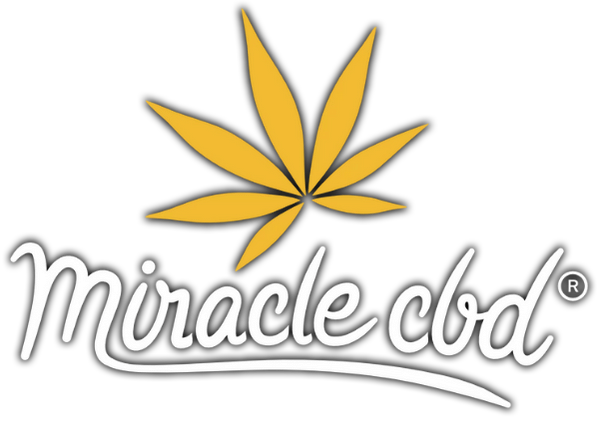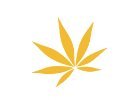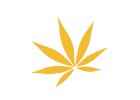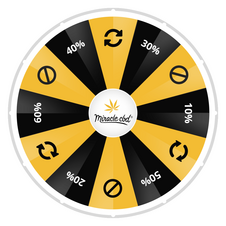CBD hemp and legislation
What is the official position on CBD legislation in the Czech Republic? We bring you information from SZPI, which supervises sale CBD foods and food supplements, which they can be CBD drops from hemp and other hemp products.
Is the maximum daily intake of CBD for dietary supplements established or recommended in the Czech Republic or the EU?
The maximum daily intake of CBD is not set either at the level of the Czech Republic or at the level of the EU. We consider synthetically obtained cannabinoids to be novel foods, the introduction of which must be preceded by an authorization process according to Regulation (EU) 2015/2283 on novel foods. A product made from the leaves or seeds of a plant is not considered a novel food hemp with natural CBD content. However, if such a product is "enriched" with CBD, then the above applies and we consider such a product to be a new food that must be approved before being placed on the market.
Is it possible to use the raw material - dried hemp extract in the form of a powder with a content of 5% CBD in food supplements in the Czech Republic?
See the answer in the introduction - hemp extract CANNOT be added to food, because hemp extract is on the list of addictive substances according to Government Regulation No. 463/2013 Coll.
Is the maximum content of CBD and THC in the raw material for dietary supplements somehow determined?
There is currently no limit for THC and its precursors at the level of European or national legislation. The European Commission, according to its Recommendation (EU) No. 2016/2115, intends to set limits for THC in food during 2019 based on the results of monitoring the presence of THC and other cannabinoids in foods from hemp or foods containing cannabis. If any amount of THC is detected in the food, the SZPI always requests the State Health Institute (SZÚ) to assess the risk of the given food. According to the opinion of the SZÚ, it is then decided whether it is a dangerous food according to Article 14 of Regulation (EC) No. 178/2002 and then they are imposed by SZPI relevant measures (prohibition of circulation, withdrawal from the market, etc.)
Does CBD raw material have to be standardized for CBD content?
See the answer to the first question.
Is the form of the raw material as an active substance - food supplement - nutrient (powder from the whole plant, oil, dried extract from the hemp plant) somehow determined or limited?
Only leaves and seeds of the hemp plant with a content of up to 0,3% THC (technical hemp) or products from them can be placed on the market as food. The leaves and seeds of the cannabis plant do not fall under the definition of cannabis and are not considered an addictive substance in the sense of Act No. 167/1998 Coll.
Does the active substance from CBD hemp have to come only from technical hemp or can it also come from hemp for medical use when meeting the THC content for dietary supplements?
The THC limit for dietary supplements is not set. Only leaves and seeds of the hemp plant with a content of up to 0,3% THC (technical hemp) can be used in food. But at the same time, it also applies that even a variety of cannabis with a THC content of up to 0,3% can be considered a narcotic substance, provided that part of the plant used was the top.
Can the raw material come from hemp (Cannabis sativa) and hemp (Cannabis indica)?
Act No. 167/1998 Coll., on addictive substances, refers to gender hemp (Cannabis) in general.
Does the raw material have to be only from a licensed producer and seller in the EU or the Czech Republic, or can the raw material be bought outside the EU, provided that it meets the legal regulations for a THC content of up to 2% for the Czech Republic and up to 3% for the EU?
According to § 5 paragraph 5 of Act No. 167/1998 Coll. a handling permit is not required for the acquisition, storage and processing of hemp plants, which may contain a maximum of 0,3% of substances from the group of tetrahydrocannabinols, namely only hemp for industrial, technical and horticultural purposes, as well as cannabis trade for these purposes.
Does the raw material have to contain a standardized CBD content or can the content vary according to the batch or the natural conditions of the harvest?
According to the information available to us, the natural content of CBD varies in individual varieties.
Does it apply that in the Czech Republic the maximum content of hemp raw material for supplements is set at 0,3% THC by weight of the raw material and for the EU at 0,2% THC?
See previous answers.
Is there currently any binding legal interpretation of the SZPI, SZÚ, SÚKL, EFSA (EU) or other institutions of the Czech Republic or the EU on the use of hemp in food supplements?
There is no binding legal regulation beyond the scope of the above. There is only a recommendation from the EFSA, which set the acute reference dose for THC at 2015 µg/kg body weight/day in 1.
THC, CBD in different types of food:
Common foods (e.g. oils, rubbery teddy bears)
Only leaves and seeds of the hemp plant with a content of up to 0,3% THC (technical hemp) or products from them can be placed on the market as food. The leaves and seeds of the cannabis plant do not fall under the definition of cannabis and are not considered an addictive substance in the sense of Act No. 167/1998 Coll. But at the same time, it also applies that even a variety of cannabis with a THC content of up to 0,3% can be considered a narcotic substance, provided that part of the plant used was the top.
According to § 5 paragraph 5 of Act No. 167/1998 Coll., on addictive substances, as amended, a handling permit is not required for the acquisition, storage and processing of cannabis plants, which may contain a maximum of 0,3% of substances from the group of tetrahydrocannabinols (THC), namely only hemp for industrial, technical and horticultural purposes, as well as trade in hemp for these purposes. We therefore believe that cannabis containing Max. up to 0,3% THC, can be used in food
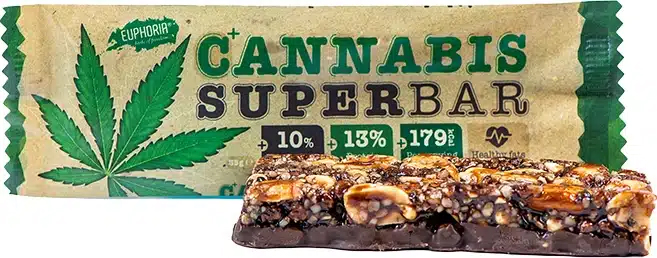
Furthermore, in Annex 1 point A of Government Regulation No. 455/2009 Coll., which establishes for the purposes of the Criminal Code which plants or mushrooms are considered to be plants and mushrooms containing a narcotic or psychotropic substance and what their quantity is greater than small in the sense of criminal law of the Code, it is stated that all types and varieties of cannabis containing more than 0,3% of THC substances are considered to be a plant with narcotic and psychotropic effects. For this reason cannabis up to 0,3% THC content it is not considered a plant with narcotic and psychotropic effects, and according to § 2 of Act No. 110/1997 Coll., on foodstuffs and tobacco products, it means food. According to Article 17 of Regulation 178/2002, which lays down the general principles and requirements of food law, the operator of a food business is responsible for the food it puts into circulation, and therefore there is no approval of products for distribution in the Czech Republic, nor are any certificates issued.
CBD legislation - dietary supplements
As regards food supplements (which is a specific category of food), in Decree No. 58/2018 Coll. it is stipulated that narcotic or psychotropic substances, precursors of category 1 of Annex I of Regulation (EC) No. 273/2004 on drug precursors and other substances that have been proven to be toxic, genotoxic, teratogenic, hallucinogenic cannot be added to dietary supplements individually or in a mixture , narcotic or other adverse effect on the human organism.
It follows that the THC content in food supplements must be below the detection limit of the laboratory method - it must not be present.
It follows from the above that under certain conditions it is possible to food cannabis to add. If cannabis is a component of the food, it is necessary to perform a conversion according to the content of cannabis in the food. However, it is not possible to add hemp to food supplements.
Using hemp extracts to produce CBD foods
Cannabis plant extract as such, it cannot be used in food production, as it is a narcotic substance (Act No. 167/1998 Coll. in conjunction with Government Regulation No. 463/2013 Coll. and following the United Nations Single Convention on Narcotic Substances)
CBD extract (extract from the plant Cannabis sativa with increased CBD content) and products created from it containing cannabinoids is considered a so-called new food. This applies both to the extracts themselves and to all products to which the extracts are added as an ingredient (e.g. CBD hemp oil). Even this extract cannot be added to food, because according to Article 6 of Regulation 2015/2283 on novel foods, only novel foods listed in the Union list may be placed on the market.
Legislative requirements for dietary supplements
Requirements for dietary supplements are given in Czech by Decree No. 58/2018 Coll., which establishes requirements for food supplements and food fortification, as amended. Dietary supplements must not contain plants or their parts listed in this decree and also plants or their parts containing very strong active substances used for pharmaceutical and therapeutic purposes.
Permitted forms of vitamins and minerals can be found in EU Regulation No. 1170/2009.
Recommended daily doses of vitamins and minerals can be found in EU Regulation No. 1169/2011.
